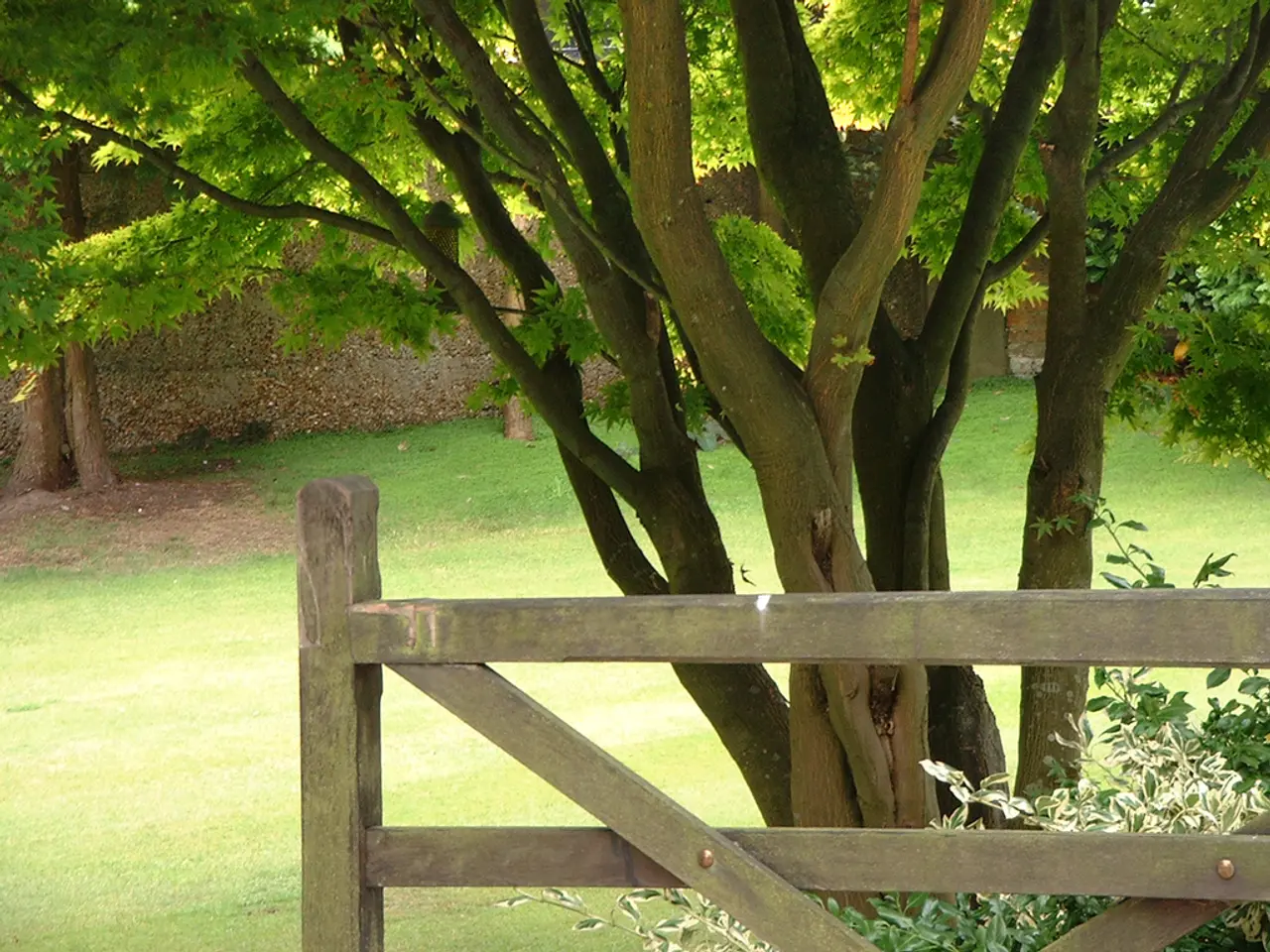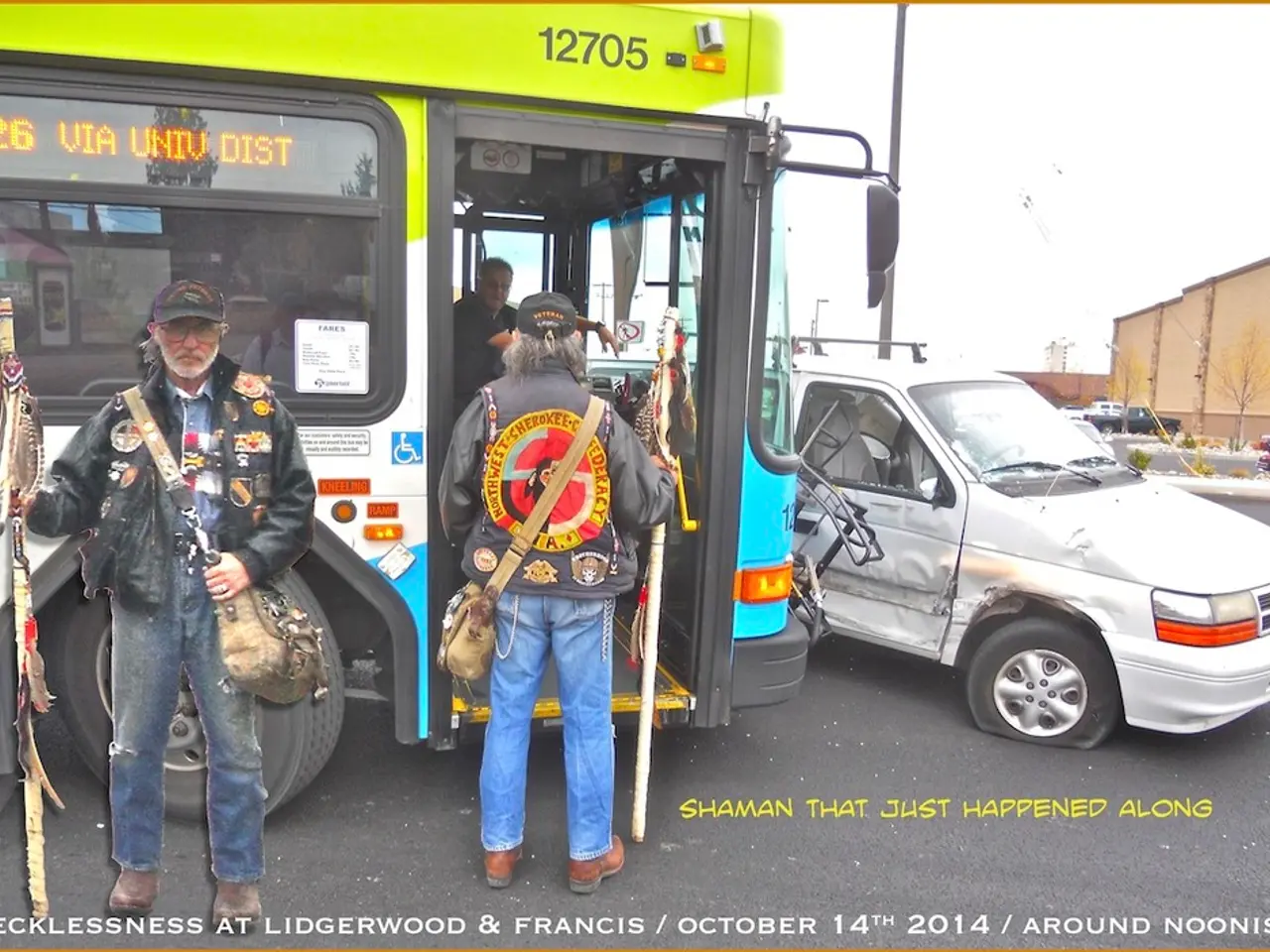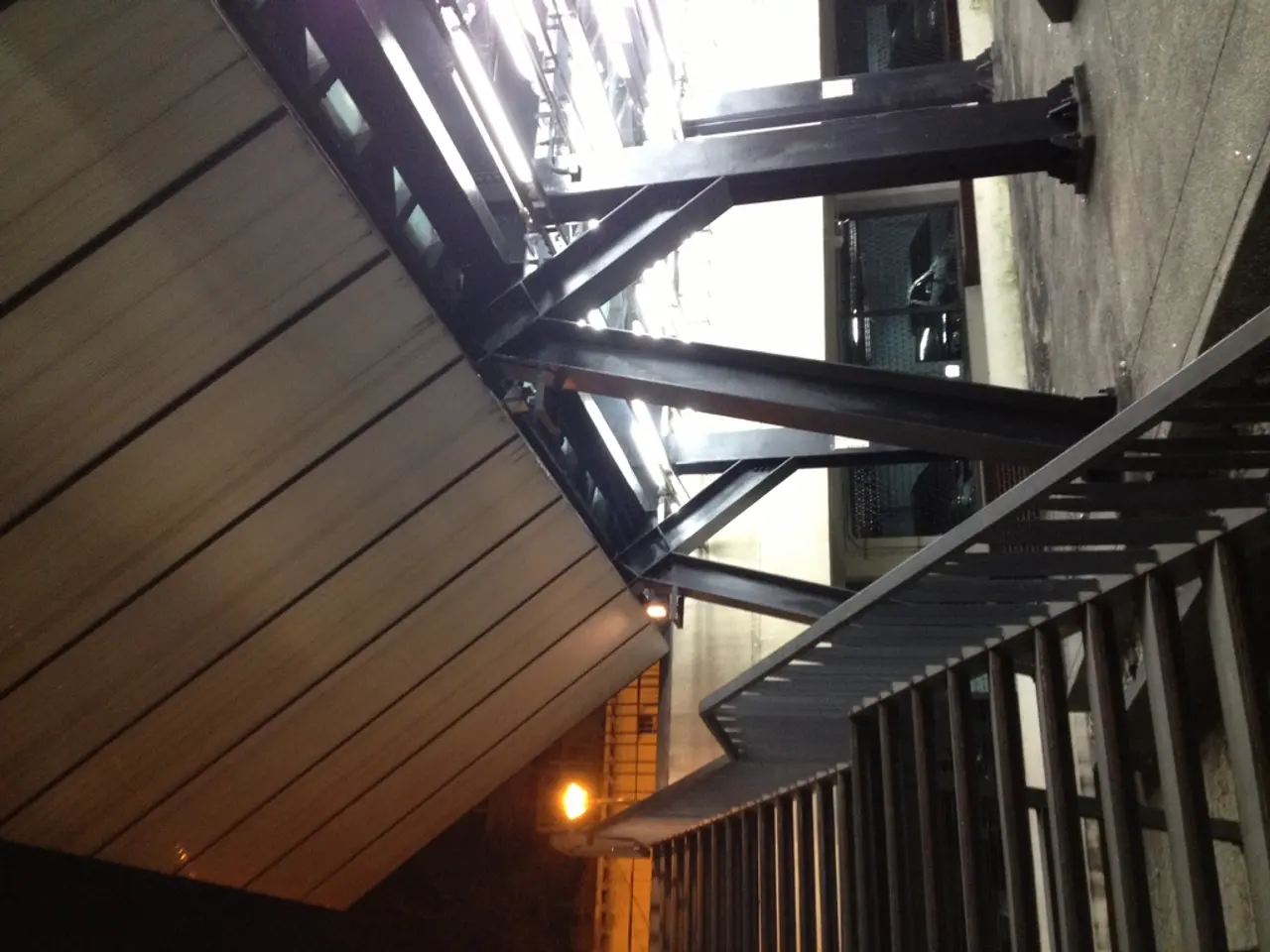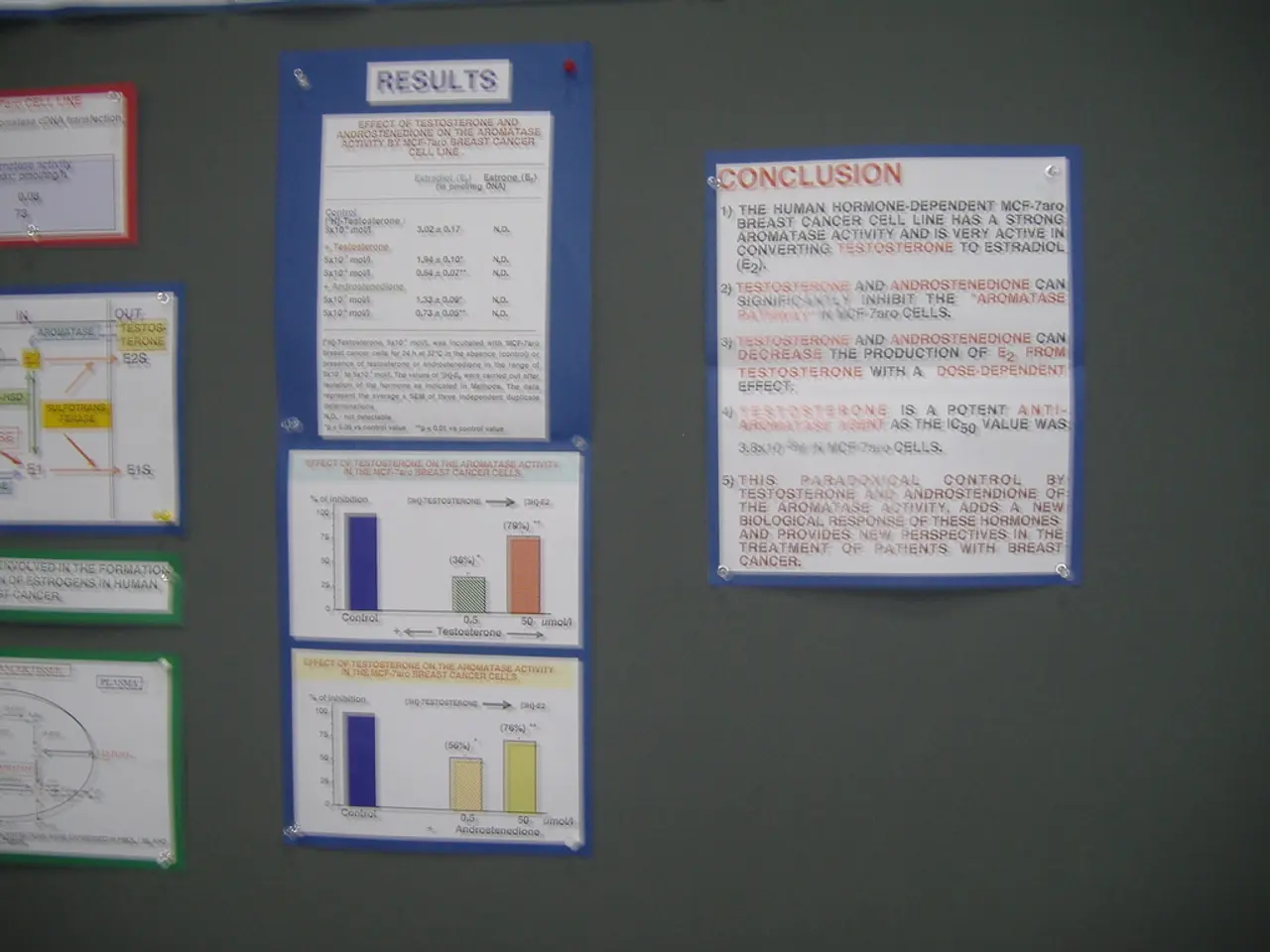Pope Race: Germany's Economic Powerhouses Challenge the Papal Throne
Financial woes potentially leading to the election of a German Pope in the Vatican.
German cardinals might just shake things up in the Vatican. Reports are brewing that Archbishop Reinhard Marx from Munich could be a frontrunner for the papal seat, thanks to his financial acumen. But is having economic strength enough to land the top religious position?
Initially, German contenders seemed slim in the conclave. Cardinals from Italy and the Philippines were the usual suspects. However, recent buzz has the BBC proclaiming Marx as a notable contender. He's the coordinator of the Vatican's economic council and managed to shed light on the mounting financial woes of the Holy See, a tricky task considering the shady finances that have plagued the Vatican for years.
Panorama: The Struggling VaticanThe highly anticipated papal election stirs debate about the financial calamities waiting for the new pope. The Vatican's deficit has increased significantly, reaching a staggering 87 million euros by 2024. Even substantial cuts can't seem to stanch the financial bleeding according to an anonymous cardinal quoted by Italian "La Repubblica": "A miracle would be needed."
Meanwhile, Marx presides over a diocese that enjoys a prosperous economy, one of the richest in Germany. The Archdiocese of Munich-Freising boasts a significant surplus of 19 million euros for the year 2023, placing it on the Vatican's radar. Add to this Marx's previous stint as chairman of the German Bishop's Conference and an advisor to Pope Francis, and he's got a solid case for the papacy.
Yet, it's important to note that the dioceses are not obligated to disclose their financials, not even when they receive public funding. In light of previous financial scandals, the Bishop's Conference has promised greater transparency, committing to adopting commercial accounting, conducting annual audits and publishing the reports. Churches in Germany profit from certain privileges as corporations under public law – they don't have to pay corporation tax and trade tax.
Not All Black NumbersChurch tax revenues, supplemented by donations and investments in stocks and real estate funds, make up the main income of the dioceses. The dioceses are also involved in businesses, like the Aachener Siedlungs- und Wohnungsgesellschaft, a company that counts the dioceses of Cologne, Paderborn, Trier, Münster, Essen, and Aachen among its shareholders. With a balance sheet total of almost 4 billion euros, the company holds 760 million euros in equity as of the end of 2023. A 100% subsidiary of the Aachener Siedlungs- und Wohnungsgesellschaft rents out commercial properties across Germany, including prime locations like Munich's Stachus or Berlin's Ku'damm.
The dioceses of Cologne and Paderborn, along with Munich-Freising, are considered the wealthiest dioceses in Germany. Figures from 2020 place Paderborn at the top with a total capital of over 7 billion euros, followed closely by Cologne with around 2.8 billion euros in equity in 2023 and making a profit of around 5 million euros.
The Poor Eastern DiocesesWhile not all dioceses are swimming in money, the dioceses of Dresden-Meißen, for instance, suffered a loss of more than 2 million euros in 2022. Subsidies to eastern dioceses have been gradually reduced, and they are set to cease entirely from next year. The future for these dioceses will be tough, as Bishop Timmerevers of Dresden-Meißen stated as early as 2023 in the "Sächsische Zeitung": "Our diocese will have to manage with fewer financial resources in the future."
Valuating the Church's WealthEven the value of properties that have been under church ownership for centuries remains challenging to determine. Cologne Cathedral, for example, is listed at only 27 euros, while its actual value with all the artworks is difficult to estimate. This ambiguity extends to the overall wealth of the dioceses since charities, religious communities, and other church organizations have their separate budgets and assets.
Political scientist and church critic Carsten Frerk once tried to calculate the total value of the Catholic Church's assets, coming up with approximately 270 billion euros. However, he admitted that calculating exact figures for the church's wealth is nearly impossible. To add to the financial woes, Catholic Church membership is on a steady decline, which means fewer revenue streams in the coming years.
Whether Archbishop Reinhard Marx's credentials will earn him the papal position can only be decided by the cardinals. In church media, Marx remains a long shot, with one cardinal colleague describing him as "smiling all the time." Regardless of the religious politics and debates, money seems to play a significant role in the conversation surrounding the next pope. Only time will tell if economic strength will usher in a new pope from Germany.
This article was first published on capital.de
Source: ntv.de
Vatikan
Katholische Kirche
Rom
- Amidst the economic powerhouses challenging the Papal Throne, the community policy and employment policy of German dioceses, particularly the Archdiocese of Munich-Freising, are garnering attention due to their significant surplus and financial transparency.
- Despite the mounting financial woes of the Vatican, the unlikely contender for the papal seat, Archbishop Reinhard Marx, manages a prosperous diocese and has strong ties with the financial world, having been an advisor to Pope Francis.
- In light of the BBC proclaiming Marx as a notable contender, the employment policy of the Bishop's Conference, including commercial accounting, annual audits, and the commitment to greater transparency, has been under scrutiny.
- The business sector is also involved in the Vatican, with companies like the Aachener Siedlungs- und Wohnungsgesellschaft, owned by dioceses, holding substantial assets and generating income through rental properties and stocks.
- As the general-news commentators discuss the potential German pope and the role of finance in the papal election, sports journalists might find themselves analyzing the Papal Race like any other political or economic competition.




